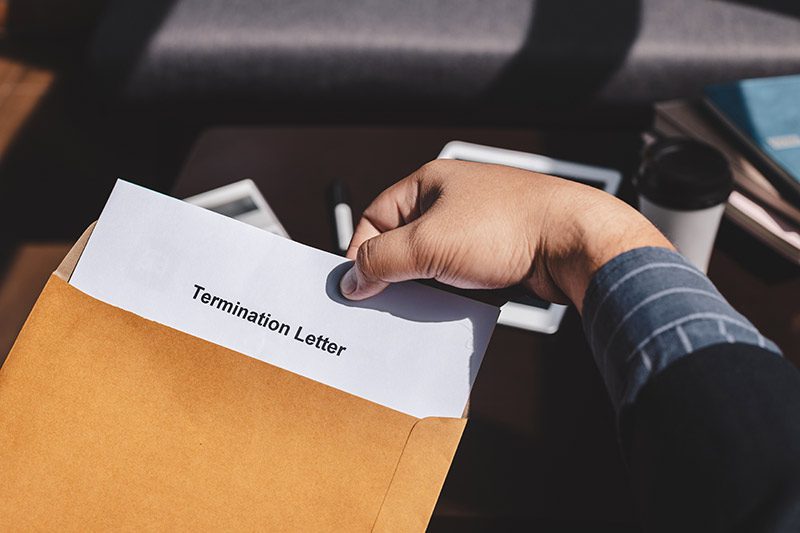Employment discrimination is a serious problem that can have devastating effects on your career and life. If you believe you have been the victim of employment discrimination in Wisconsin, it is important to understand the legal process and what to do before filing a claim. An employment lawyer with experience in the Wisconsin Fair Employment Law can help you throughout the process.
What is employment discrimination?
Discrimination in the workplace occurs when employees are treated unfairly due to characteristics that are protected by law such as:
- Age
- Marital status
- Gender
- Race, Color, National Origin, and Ancestry
- Pregnancy or Childbirth
- Sexual Orientation
- Disability
- Arrest or Conviction Record
- Creed (Religious beliefs)
- Military Service
- Use or Nonuse of Lawful Products
- Honesty Testing
- Genetic Testing
What it is:
Workplace discrimination can be exhibited in many ways, including refusals to hire, promote, or provide the same opportunities or wages to employees because of their protected identity. If management allows discrimination or creates a hostile work environment due to prejudices against certain groups, they are also responsible for workplace discrimination.
What it isn't:
Remember that not all workplace issues fall under the category of employment discrimination. For example, let's say your boss is always grumpy and snaps at everyone, but seems to be especially harsh towards you. You may feel like they're singling you out because of your age, gender, or some other protected characteristic, but if their behavior is the same towards everyone else in the workplace, it's not considered discrimination. Additionally, situations involving nepotism, where an unqualified relative is hired, are only deemed as discrimination if there are laws or regulations in place prohibiting it. Performance issues, personality clashes, and workplace bullying do not qualify as employment discrimination unless it is based on bias or harassment.
Before pursuing legal action, it is important to consult with an employment lawyer who can evaluate your case and inform you of the appropriate course of action.
What to do if you think you've been discriminated against
To take action if you suspect employment discrimination, familiarize yourself with the various forms of discrimination and consider the situation to make sure it falls under the category of discrimination based on race, gender, age, sexual orientation, or religion.

Document Everything
After that, document everything. Keep detailed records of any incidents or conversations that suggest you've been discriminated against. Make notes of who said what and when. Keep copies of any relevant emails or memos. Your records could be helpful evidence later on, should you need to file a claim.
It might be a good idea to try and talk to your employer about your concerns. But if you're not comfortable discussing your concerns with your employer, consider seeking the advice of an employment law attorney. An attorney can help you understand your rights and options and provide guidance on what steps to take next.
File a Formal Employment Discrimination Complaint
If you believe you have been discriminated against in employment, you can file a complaint with the Wisconsin Department of Workforce Development's Equal Rights Division (ERD), which has the authority to enforce the Wisconsin Fair Employment Law. You may do this by completing the ERD Charge of Discrimination form within 300 days of the assumed discrimination. This form is accessible online or by request. Once a charge has been filed with the Equal Rights Division, the next step is the Civil Rights Complaint Process.
The Civil Rights Complaint Process
- Investigation Process
- An investigator assigned to the case will notify the respondent of the complaint and provide them with a copy. The respondent then has twenty-one days to present a written answer to the complaint.
- The investigator will interview witnesses and collect evidence to assess the case.
- While the investigator is not authorized to provide legal advice to either party, they may offer the parties the possibility to resolve the complaint via settlement.
- If the complaint is not settled, the investigator will then decide if there is a "Probable Cause" or "No Probable Cause" to believe the law has been violated.
- Formal Hearing
- In cases where there is probable cause, the complaint will go to a formal hearing. This hearing will take the form of a trial and may include witnesses, evidence, and arguments from both sides.
- The Administrative Law Judge will make a written decision within 30 days of the hearing.
Upon the conclusion of the investigation, a determination will be delivered by the Equal Rights Division. - If a violation of a Civil Rights law is found to have occurred, remedies may be given to make the situation right. These can comprise of back pay, reinstatement, lost benefits, interest, attorney's fees, and costs, or other solutions as appropriate.

For example, if an individual has been wrongfully dismissed due to discrimination, the ALJ could grant back pay from the date of the termination up to the date of the decision. Similarly, if someone has been denied a promotion because of their race, the ALJ may grant the promotion and back pay to the date when it should have been received.
The ALJ, however, is not allowed to award any damages for humiliation, emotional pain, or punitive damages.
How an Employment discrimination Lawyer can Help
Have you experienced employment discrimination in Wisconsin and want to file a claim but don't know where to start? An experienced employment lawyer can make all the difference between a claim that is dismissed and a successful claim.
Initiating an Employment Discrimination Case
To start, an employment lawyer can help you assess the strength of your case. They can evaluate the evidence you've collected and advise you on the likelihood of success. For example, let's say you were denied a promotion because of your gender. Your lawyer can analyze your qualifications, the job requirements, and any discriminatory statements made by your employer to determine whether you have a solid case.
Advocating on Your Behalf
Once you've decided to file a claim, your lawyer can guide you through the administrative process. This includes filling out forms, submitting evidence, and communicating with the Equal Rights Division. They can ensure that everything is done properly and on time, which is critical to a successful outcome.
If your case goes to court, an employment lawyer can represent you and argue your case before a judge or jury. They can also negotiate a settlement with your employer if it's in your best interest. For instance, if you were fired because of your race and your employer is willing to settle out of court, your lawyer can help you secure a fair and just settlement.
Navigating the Entire Process
In addition to legal expertise, an employment lawyer can provide support during what can be a difficult and stressful process. They can help you navigate the ups and downs, answer your questions, and help you understand your options. They will also help you decide which option is best for your specific situation.
an Experienced Wisconsin Employment Lawyer
Filing an employment discrimination claim in Wisconsin can be complicated, but the Bykhovsky Law Firm is here to help. Our experienced employment lawyer can guide you through the process and fight for your rights.
At Bykhovsky Law Firm, we understand the complexities of employment discrimination claims in Wisconsin. We can help you understand your rights, assess the strength of your case, and guide you through every step of the process.
Contact us today to schedule a FREE CONSULTATION and let us help you fight for your rights.

